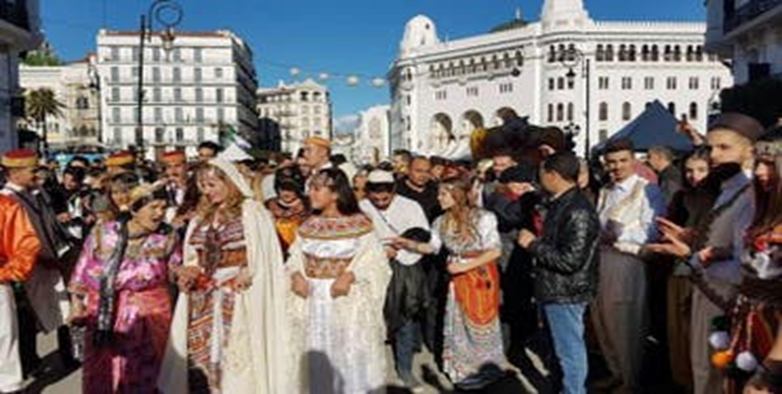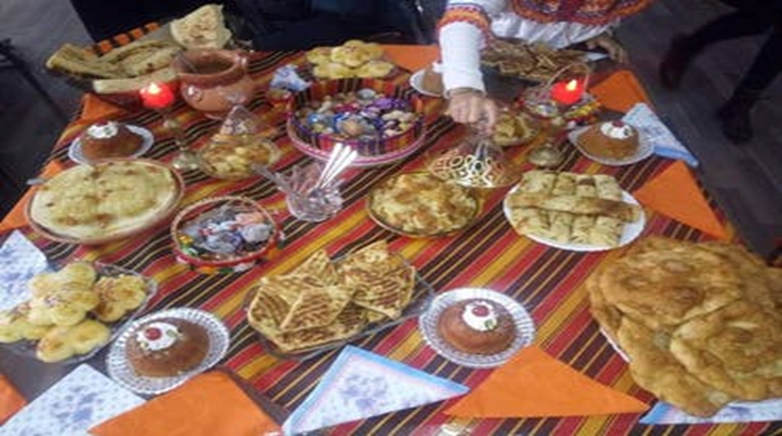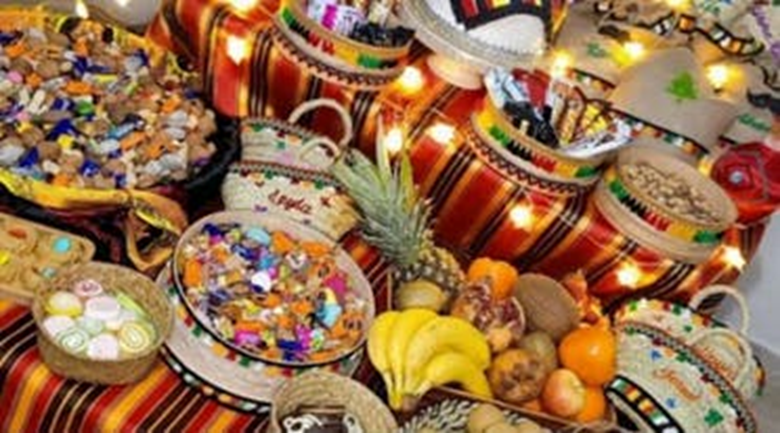?Algerians celebrate the Amazigh New Year “yanaier” 2974.. What do you know about it

Historians: To commemorate the victory of the amazighs, led by King Sheshnak, over the Pharaohs, led by Ramesses III, in the battle that took place on the banks of the Nile in the year 950 BC.
On Friday, Algeria celebrates the Amazigh New Year, known as “yanier 2974,” this Amazigh calendar whose celebration dates back decades, due to its connection to popular myths in North Africa.
Various customs and traditions stand out in Algerian society to celebrate this day, which falls on January 12 of each year. It is a holiday approved by the authorities in 2018 after Amazigh became an official language under the country’s constitution.
The victory of the Amazighs, led by King Sheshnak, over the Pharaohs, led by Ramesses III
Historians say that the celebration of the Amazigh New Year is also “to commemorate the victory of the Amazighs led by King Sheshenq over the Pharaohs led by Ramesses III in the battle that took place on the banks of the Nile in the year 950 BC. This is the battle after which the Amazigh King Sheshenq II ruled the dynasty. "Niyah and the twenty are for the Pharaohs." But it is a disputed story.

Part of the Amazigh New Year celebrations in Algeria
There have been many stories about the origin of the celebration of the Amazigh New Year, throughout history. One of the legends said that there was an old woman who defied nature by taking her goats to graze in the cold days of January. Nature felt angry and became extremely cold on the old woman in retaliation. There is also another symbolic story, which confirms that celebrating in January reinforces the importance of coexistence with nature, patience with its harsh conditions, and the severe cold waves and their impact on agriculture and plants, until they end and the beginning of the spring season and enjoying the sunshine.
The Amazigh New Year celebrations witness various cultural events, most of which are related to agriculture and the agricultural seasons.
The celebrations also include lectures and various academic activities aimed at introducing the Amazigh civilization and its history, and also discuss issues related to the Amazigh, their concerns, culture, and their place in their societies.
On social media, those celebrating “January” posted pictures of celebrations in their families and regions, showing the various celebration rituals that differ from one region to another.

Part of the Amazigh New Year celebrations in Algeria
One of the most famous customs of celebrating the Amazigh New Year is the slaughtering of sacrifices and the distribution of food to the weak. In some Algerian regions, these customs are called “louzia.”
Pour the plate of sweets on the children's heads
Some Algerians also prepare a large plate of sweets, nuts, and dried fruits, then pour the plate on the heads of the family’s children so that their next life will be a life of goodness and happiness, according to their belief, and then distribute the rest among the children and adults.
In January, Algerians also make “grayif,” which are sweet pies called “baghrir” in some regions.
Some celebrants plant olive trees on the first day of the New Year.

Part of the Amazigh New Year celebrations in Algeria
The celebration of the Amazigh New Year in North African countries is famous for certain foods prepared specifically for this occasion, perhaps the most prominent of which is couscous, which most holiday celebrants share in, despite the different ways of preparing it.
There is no accurate census of the Amazigh in the various countries of North Africa, and there are also many dialects used by the different groups and communities of the Amazigh in each region.
In this context, during his supervision of the National Army Club in Beni Messous, in a statement to Algerian radio, the Secretary-General of the Amazigh Semitic Prefecture, Si Hachemi Assad, highlighted the keenness of Algerian President Abdelmadjid Tebboune to preserve and strengthen the components of national identity, as he stated in his 54 commitments, and thanked the President, For his generous sponsorship of the national events of the Amazigh New Year, which coincided with the ceremony of handing over the President of the Republic’s Award for Amazigh Literature and Language in its fourth edition, organized at the “Abdel Latif Rahal” International Conference Center.

Part of the Amazigh New Year celebrations in Algeria
Assad added that the state of Algiers was chosen to embrace this major activity, “under the slogan of January, an authentic cultural treasure and a gathering vessel for sustainable development.”
For his part, political analyst Mohamed Hassan Douaji explained to Algerian radio that “January” is a vessel for cultural diversity that contributes to social cohesion in clearly defined dimensions, and its components are identity security to nourish and strengthen national cohesion.
Political analyst Qasimi Hassan also confirmed in a statement to the radio that January is an occasion that brings together the gains of national unity and Algerian personalities.

The celebration of the Amazigh New Year in Algeria and in the North African region in general remains a tradition passed down through generations, an opportunity for social harmony, and a unified occasion for heritage and cultural celebrations, attracting in some areas local or international tourists to see and learn about the tangible and intangible Amazigh heritage, “Isqas Amqas” for all Amazighs.
Source : websites

